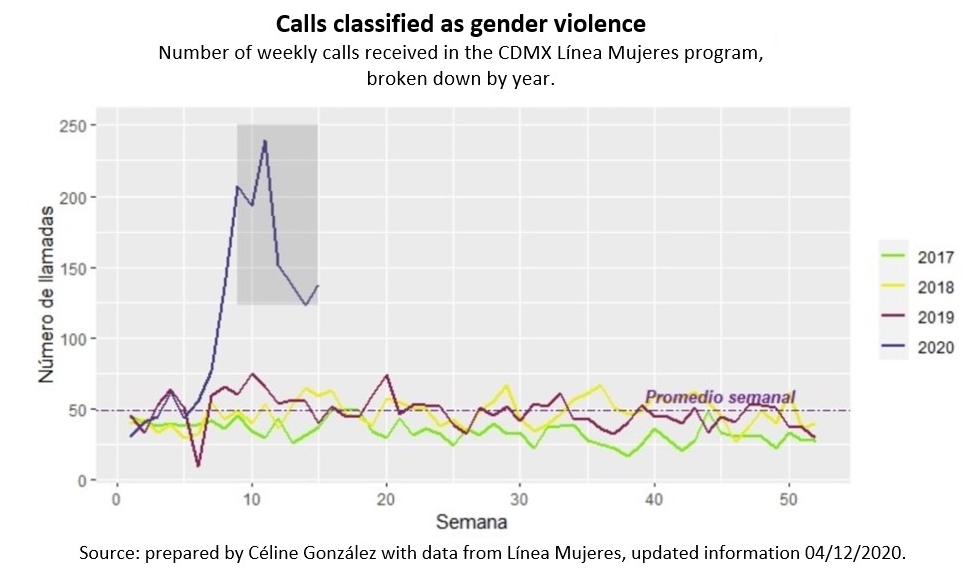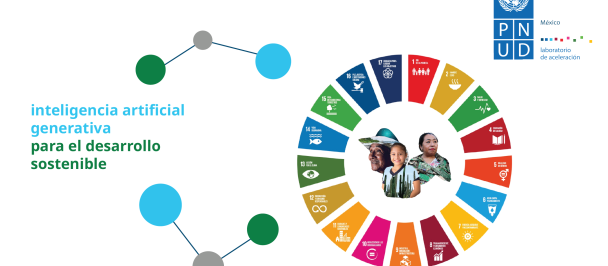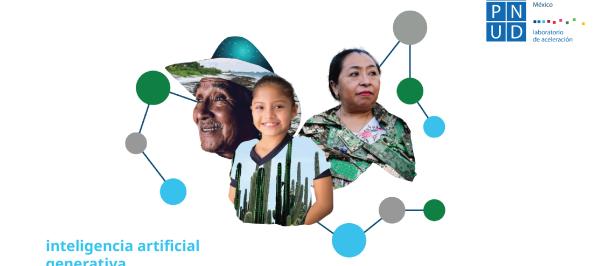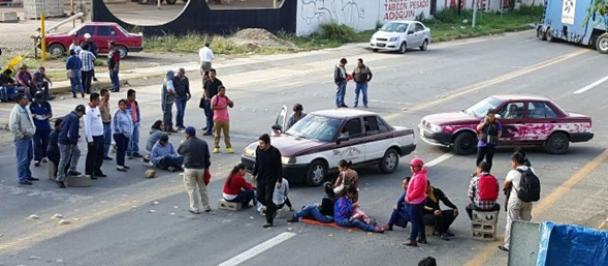A learning cycle to help government services take a decisive step into the 21st century in the care they provide to girls, adolescents, and women at risk of family and domestic violence
Technology to help homebound women
6 de Julio de 2020
Foto: Alex Rodríguez Santibáñez en Unsplash
In this blog, we tell you how, from the UNDP Accelerator Lab in Mexico, we are collaborating with the LUNA Centers of the Government of Mexico City (LUNAS) to improve their services of care and prevention of violence and the promotion of the physical, economic and political autonomy of women in the context of the COVID-19 health emergency.
The COVID-19 pandemic places girls, adolescents and women at greater risk of violence. The main implications of the physical distancing and mobility restriction measures issued in the face of the pandemic are summarized in this call to action by UN Women. These range from direct forms such as increased domestic or family violence caused by being forced to spend more time with their aggressors, to factors that operate indirectly, such as increased levels of stress, economic and food insecurity, or decreased income and unemployment, as these increase the barriers they must break down to leave the circles of violence, leave their aggressors or activate support networks.
Data confirming the urgency
The early signs of the increase in domestic violence are stark. Céline González Schont, Associate Professor and Director of Academic Evaluation at CIDE analyzed the data collected by the Mexico City Línea Mujeres. The graph shows the increase in calls received and classified as gender violence from the seventh week of 2020. If we compare the calls received in March 2020 with the same month in previous years, we can see increases of 303%, compared to March 2018, and 191%, compared to March 2019.
In addition to Línea Mujeres, which is a specialized medical, legal, nutritional and psychological hotline, the Government of Mexico City and its Secretariat for Women have other channels of assistance. One of them are the LUNAS, which are physical spaces designed to provide face-to-face care to women and provide a safe place for those who request it.
During the confinement, 16 of the 27 LUNAS remain open during regular hours, offering a point of contact in each of the Mexico City's districts. But, in the context of the pandemic, they need to reinvent their service offerings to serve homebound women. For this reason, we decided to start a new learning cycle that will allow us to find innovative ways to expand the range of services offered by the LUNAS, including the ability to provide remote care.
The UNDP Accelerator Lab's challenge
Our collaboration is part of a larger project in which UNDP and UN Women are working with the Women's Secretariat of Mexico City to strengthen the LUNAS during the COVID-19 emergency. Specifically, to strengthen institutional response capacities, as well as to create networks of sisterhood and support among the LUNAS and pilot mechanisms for the transfer of financial support to women at risk.
The project includes the development of new protocols for the care of women in situations of violence, to avoid re-victimization and to provide the LUNAS staff with tools to improve the response to the COVID-19 health emergency. The mission of the Accelerator Lab is to answer: How can technology be leveraged to make the implementation of a new telephone answering protocol and a virtual platform more user-friendly, easier to implement, and more impactful?
The step remote care services must take to enter the 21st century
The plan is to explore how technology has been used in other contexts around the world to improve capacity to provide remote care and combat gender-based violence on different fronts. For example, Artificial Intelligence to provide uninterrupted care to women victims of violence in Thailand, Machine Learning to predict and prevent areas of the city with the highest prevalence of gender violence in Chicago and robots to help take care of the mental health of the people in charge of the lines.
In the first approaches we had to make sense of this challenge, we organized a series of interviews and talked to people who work in the LUNAS and experts on the subject. We learned that LUNAS have a highly committed, experienced staff that experiences low employee turnover. In addition, they confirmed that, as the days have passed, the LUNAS are receiving more and more calls from women seeking care and support for having lost their sources of income. This gave us reason to know that we are touching on an issue that is relevant and urgent to address.
We learned about the basic technology available and what they see as the main challenges for the LUNAS to continue fulfilling their mission in times of pandemic. We learned that any technology-based solution has the challenge of being adopted by them as users, by the women seeking care and adjusting to the technological equipment that is available. We also learned that the challenge of providing comprehensive attention to victims does not depend only on the LUNAS. It requires impeccable coordination among the institutions that make up the Information Network on Violence against Women (RIVCM), a network designed to provide comprehensive care for women in Mexico City.
Now, our job is to bring to the table people with experience in the development of technological solutions, human-machine interfaces, people-centered design, user experience design and gender approach to, between all of us, come up with prototypes of solutions that can be developed in an agile way. Prototypes that we will then test and iterate until we get the one that works best for the LUNAS.
In the following posts we will tell you the results of our first explorations and advances on the type of technological solutions we will be developing. Do you know the work that the LUNAS are doing in the CDMX or do you want to share with us ideas on how new technologies can be used to improve services for the prevention of violence and the promotion of the physical, economic and political autonomy of women in the context of COVID-19? Write to us, we want to hear from you!

 Locations
Locations







